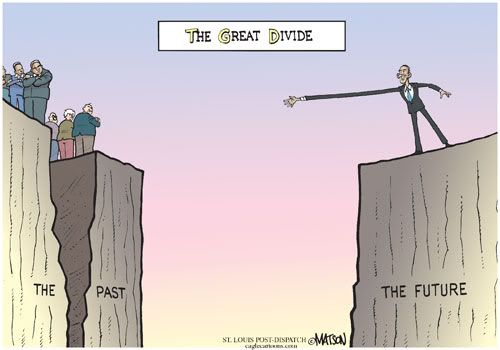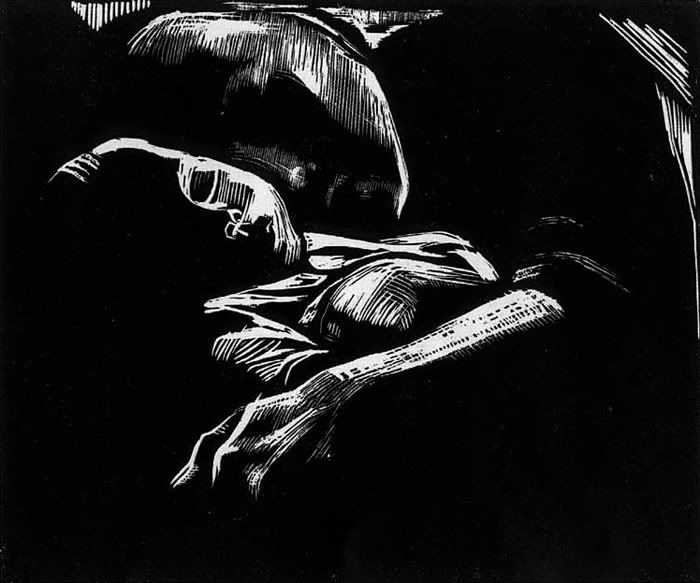Well, imagine that in addition, you're a black or brown 13 year old who has lived a lifetime with neglect, abuse, poverty, crime, and drug abuse. Imagine the kinds of "mistakes" you might make.
Do you deserve to spend the rest of your life in prison?

Well, in this United States of America, that's exactly what has happened to 73 children who were sentenced to life in prison with no possibility of parole for crimes that were committed when they were 13 or 14 years of age. All of this according to a report by the Equal Justice Initiative.
Here's just one of their stories from an article in NYU's Office of Public Affairs:
Antonio Nunez was 14 when, in April 2001, he left a party in California with two men nearly twice his age. One of the men later claimed to be a kidnapping victim. When police chased their car and shots were fired, Antonio — along with the 27-year-old driver — was arrested. No one was injured, but Antonio was convicted and sentenced to life imprisonment with no chance of parole. Just a year before, Antonio was shot multiple times while riding his bicycle near his house in South Central Los Angeles. His brother, 14, was fatally shot in the head when he ran to help Antonio.
And some data from the report:
The U.S. is the only country in the world known to have condemned 13- and 14-year-old children to imprisonment until death.
Most of these young children were accomplices to adults or older teens who were more culpable for the crime.
Most of the 73 suffered years of severe abuse and neglect. Some tried to commit suicide as young as age eight.
Children of color are disproportionately sentenced to die in prison. Of the 73 children identified, roughly two-thirds are people of color; nearly half are African American.
Most of these kids are from poor families and received grossly inadequate legal representation. Court-appointed attorneys failed to file post-conviction appeals and never challenged the death-in-prison sentence in most of these cases.
All of the 73 have been sent to adult prisons, where many are the target of horrendous physical and sexual assault by adult inmates.
In terms of international standards of decency, the U.S. finds itself alone on this one. In a United Nations resolution calling to abolish life imprisonment without the possibility of parole for children, the vote came out 185 to 1—the U.S. was the lone dissenter.
But here's the potential for some good news about all of this: the Supreme Court has decided to review two such cases this fall, both are from Florida and neither one involved murder.
One of the cases to be considered, that of Joe Sullivan, clearly demonstrates the horrendous nature of this practice.
In 1989, someone raped a 72-year-old woman in Pensacola, Fla. Joe Sullivan was 13 at the time, and he admitted that he and two older friends had burglarized the woman’s home earlier that day. But he denied that he had returned to commit the rape.
The victim testified that her assailant was “a colored boy” who “had kinky hair and he was quite black and he was small.” She said she “did not see him full in the face” and so would not recognize him by sight. But she recalled her attacker saying something like, “If you can’t identify me, I may not have to kill you.”
At his trial, Mr. Sullivan was made to say those words several times.
“It’s been six months,” the woman said on the witness stand. “It’s hard, but it does sound similar.”
The trial lasted a day and ended in conviction. Then Judge Nicholas Geeker, of the circuit court in Escambia County, sentenced Mr. Sullivan to life without the possibility of parole.
“I’m going to send him away for as long as I can,” Judge Geeker said.
As to Joe's representation in this case:
Mr. Sullivan’s trial, for instance, lasted a day. He was represented by a lawyer who made no opening statement and whose closing argument occupies about three double-spaced pages of the trial transcript. The lawyer was later suspended, and the Florida Bar’s Web site says he is “not eligible to practice in Florida.”
There was biological evidence from the rape, but it was not presented at the trial. When Mr. Sullivan’s new lawyers recently sought to conduct DNA testing on it, they were told that the state had destroyed it in 1993.
Joe Sullivan, now 33 years old, has served 20 years of his life sentence so far. I don't know about you, but it doesn't take much empathy for me to see that this is cruel and unusual. Even if he committed this crime (which looks very suspicious to me), we don't even consider 13 year-olds mature enough to drive cars. How can we think that they should be held responsible FOR THE REST OF THEIR LIVES for something they did as children? Leonard Pitts answers that question in his Open Letter to African American Men.
I'm weary of the truth in that old Richard Pryor line about how he went to court looking for justice and that's what he found. Just us.
Contrary to what society has told us, to what so much of our music claims and to what too many of us have internalized, the reason isn't that we carry some kind of criminal gene. No, it's that we don't get second chances, don't have the same margin for error a white guy would. One strike, and you're out.
As Senator Jim Webb has said, there are many reforms to our so-called "criminal justice system" that are necessary. I strongly support his efforts and in the meantime hope that this fall the SCOTUS finally gets this one right.






